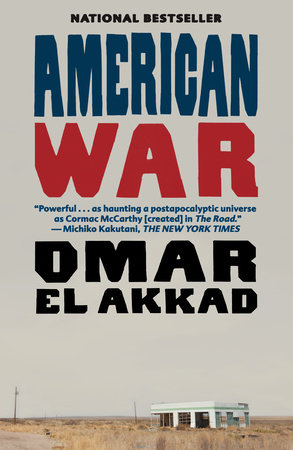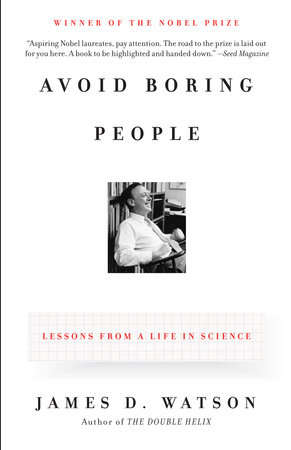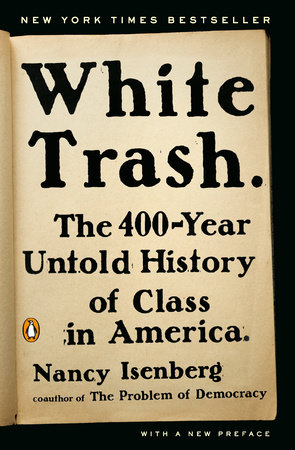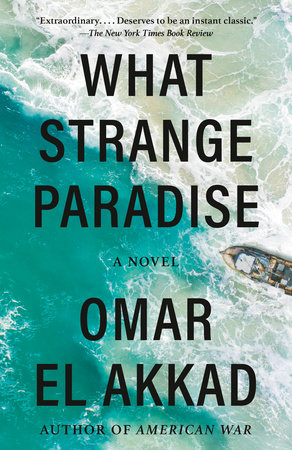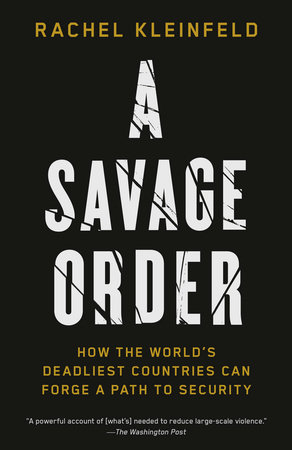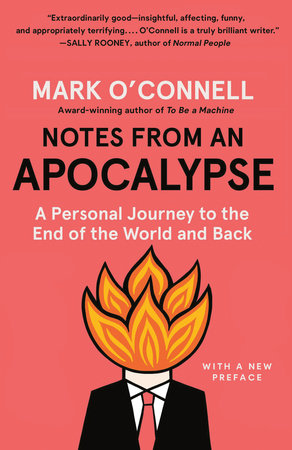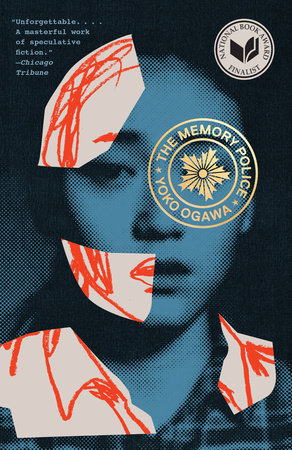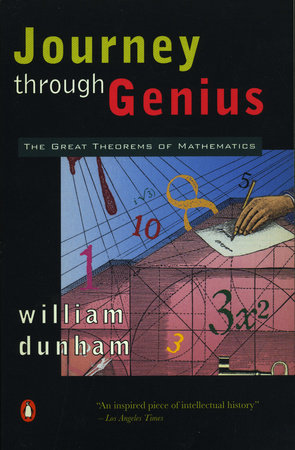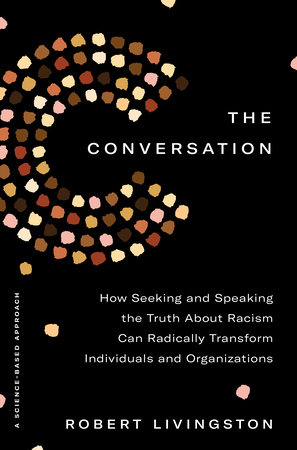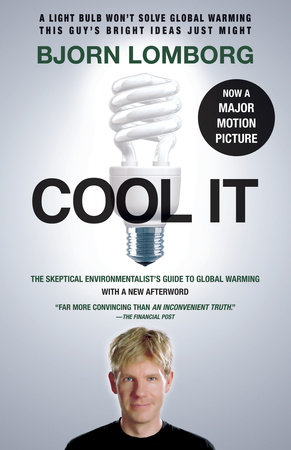Q: When did you begin working on American War, and was there a particular event you would say was the genesis of the novel?
A: I started working on the novel in the summer of 2014 and finished the first draft almost exactly a year later. Insofar as there exists a genesis moment, it came a few years earlier. I was listening to an interview with a national security expert conducted during the height of the NATO-led invasion of Afghanistan. At one point, referencing a recent wave of local protests against the U.S. military presence there, the interviewer asked something to the effect of “Why do they hate us so much?” The expert replied by mentioning that sometimes U.S. soldiers have to conduct raids in Afghan villages, and that during these raids they often turn the villagers’ houses inside out and hold the residents at gunpoint. In Afghan culture, the expert helpfully explained, this sort of thing is considered offensive. I remember thinking, Name me one culture on earth that wouldn’t consider this sort of thing offensive. Name one. It was that train of thought that led me to consider what it would be like if all these wars that the West has had the luxury of observing from a great distance were instead to take place at home. I wanted to view this war not through some disinterested lens, but rather through the eyes of someone on whose land the fighting rages, someone who can’t escape or dismiss it. At its heart, American War is a story about the life and death of a single character: Sarat Chestnut, a child of southern Louisiana, born and raised amidst the violence of a second civil war. It’s a story about her capacity for love, suffering, and, ultimately, vengeance. And I think that, even across the vastest chasms of culture or geography, the things that drive us to love, suffering, and vengeance are always the same.
Q: How did you arrive at 2074 as the year your fictional Second American Civil War breaks out?
A: I needed time for the fictional world in which the novel takes place to take shape. The global events that define this world—chiefly, the creation of a democratic pan-Arab empire, and the catastrophic amount of land loss caused by climate change—are not particularly plausible in the next decade or two. Of course, the kind of sea-level rise I envision in this book greatly exceeds even the most alarming climate scientists’ projections of what the world will look like toward the end of this century (for now, anyway; who knows how those projections will change in the coming years). But to correct for that by setting this book hundreds of years from now would in my mind be an abdication of sorts; I never meant this to be a novel about the future.
Q: There are clearly many factors leading to the events of the book, but the war really breaks out over a battle for sustainable energy. You have reported extensively on the fossil fuel industry. How did you settle on this as the defining rift of North vs. South?
A: It seemed necessary that the war’s precipitating event be some injustice or looming calamity that, long after it requires any courage to do so, members of future generations will boldly declare they would have opposed. The obvious analogy in this regard is the central cause of America’s first civil war. It is all well and good today for someone who would not have felt the monstrous effects of slavery firsthand to argue that he would have stood publicly against it. But, in truth, it is incredibly difficult and requires immense courage to call for the abolition of anything that drives a vast and lucrative economic engine (which, in the plantation-era South, is exactly what slavery was). Very few acts in human history rival slavery in terms of sheer human cruelty, and as such, that wasn’t my criterion when I went searching for an analogy. But as something many people are happy to benefit from today, but will surely oppose once it becomes safe and acceptable to do so tomorrow, fossil fuel use seemed apt.
Q: Your work as a journalist has also taken you to the wars in Afghanistan, to Guantánamo Bay, to Egypt during the Arab Spring; to Ferguson, Missouri. How does your experience covering war and also covering deep racial tensions inform this novel?
A: Like all novelists, I’m an unrepentant plagiarist. There are all kinds of details in the book I stole and repurposed from things I saw and heard while I was on assignment. The style and layout of the tents in Camp Patience is based on an encampment in Guantánamo Bay called Camp Justice, and on the layout of the NATO airfield in Kandahar (the latter is also home to Emerald Creek, a reeking wastewater ditch that makes an appearance in the novel). Other influences were less direct: watching tear gas and armed soldiers on the streets of Ferguson, not long after seeing the same images in Cairo, cemented something in my mind about the symmetry of injustice—the extent to which the success of entire social systems is often predicated on certain people’s stories being kept silent.
Q: What is the most difficult thing you have covered?
A: A few years ago, my newspaper sent me to cover a technology conference in Las Vegas. The conference was one of those self-congratulatory industry events where nothing newsworthy ever happens, so I decided to look for something else to write about. I learned there exists, beneath the Vegas Strip, an invisible city—thousands of human beings with nowhere else to live who set up small makeshift homes in the storm drains and sewers. I went into this city, and there I met Richard and Cynthia, a married couple who on that day were busy rebuilding their entire lives—every now and then the floodwaters or the cops come through and sweep all their belongings away. They were kind people, and deeply in love. They’d done nothing wrong, they’d hurt no one; it seemed so plainly unfair that they or anyone else should have to live this way. I’ve covered wars and uprisings and environmental disasters, but for reasons I know are probably inadequate, I still get the most upset when I think about Richard and Cynthia.
Q: After working in journalism for so many years, why fiction?
A: Fiction has always been the world in which I feel least alien. I was in second or third grade when I discovered I had some talent for writing stories—or, more accurately, that I had absolutely no talent for anything else. My father was an avid reader and a kind of walking encyclopedia of Egyptian literature. In the Arabian Gulf, where I grew up, you couldn’t get your hands on any piece of culture—books, music, movies, anything—before the government censored it. I think I still have lying around somewhere my copy of Nirvana’s Nevermind, with the naked baby on the album cover entirely blacked out by some anonymous bureaucrat’s permanent marker. (A couple years later, In Utero came out and, sure enough, the censors blacked out the illustrated angel on that cover as well.) I don’t think my school library contained a single book that even mentioned Israel. When you grow up in that kind of environment, you soon start to suspect that all stories, beyond the joy or catharsis they inherently provide, also function as a cipher of sorts. Everything you need to know about a society you can glean from how that society tells its stories, whose stories it chooses to tell, and whose stories it chooses to silence.
But I never thought I could make a career of writing. In college, I spent most of my time working at the school newspaper, and after I graduated I landed a summer internship at a newspaper in Toronto, which eventually turned into a full-time job. I worked at the newspaper during the day and wrote fiction between midnight and five in the morning. I stuck to that routine for the better part of ten years and four novels. The first three were mediocre, but worse than that, they felt unnecessary; they had no teeth, so I never tried to get them published. American War felt necessary.
Q: How did you begin to go about imagining what the world would look like in 2074 and beyond? Was there any research you did to inform certain aspects of your imagined landscape?
A: My journalism assignments took me to many parts of the country that ended up in the book. One of the most memorable features I ever worked on was a piece about land loss in southern Louisiana—the equivalent of a football field of land melts into the water every hour or so, the result of climate change and industrial mismanagement all along the southernmost end of the Mississippi shipping route. I wrote a similar story in southern Florida, where some small-town mayors are trying to explain to their constituents that, thanks to climate change, the places they call home may not be fit for human habitation in a few decades’ time. I tried to imagine what the resulting inland migrations would look like. Much of the military landscape also comes from things I learned while on assignment—the layout of forward operating bases, the way an insurgency fights and the way to fight an insurgency. And then there was some incredibly esoteric research, side roads that popped up serendipitously and which I explored for days at a time—reports of burgeoning lionfish infestations near the Florida coast, the painkilling properties of spider venom, the influence of Sir Walter Scott’s writing in the civil war–era South, that sort of thing. By the end it felt like I’d spent a year studying at the world’s most disjointed university.
Q: Can you describe the Bouazizi Empire of your novel and how it came into formation?
It came into formation much the same way that the United States came into formation: an array of different cultures and peoples, once under the somewhat absentee rule of French, British, and other assorted colonizers, realigned into a single democratic union. I envisioned a future in which revolutionary protests, after much bloodshed, finally succeed in bringing about a functioning democracy, and ultimately an imperial power. It’s a wildly optimistic vision, given the dismal state of the modern Middle East, but I suppose audacious optimism in the face of obvious fracture and strife is another thing the Bouazizi has in common with the United States.
Q: I have to ask the question: Do you think the events of your novel are plausible?
In literal terms, no. I think the reference points and lines of trajectory I use are not particularly opaque, but virtually everything in this book is filtered through a deliberately grotesque lens. In analogous terms, however, much of what’s in this book has already happened. If readers see something of the Arab–Israeli conflicts, or the wars in Iraq, or the invasions of Afghanistan, or even the Northern Irish Troubles, it is because I have stolen elements of these wars and dressed them in different clothes. There’s this cliché that all wars are the same. I don’t think all wars are the same, but I do think the language of suffering is universal.
Q: You write, “You fight the war with guns, you fight the peace with stories.” Can you explain?
A: A couple of years ago, I was on my way from Florida to Kennesaw, Georgia, to write a story about a (purely symbolic, totally unenforceable) law that demanded every household in that town own a gun. A few miles north of the state border, I saw this billboard. And all it said, in big capital letters, was “SECEDE.” It still amazes me how that one word carries within it an entire ideology. Anyone who knows anything about this country could look up at that sign and know exactly how its authors view the world. It got me thinking about the stories that so often precipitate bloodshed, and how they almost always outlive that bloodshed. Wars end and the incitements that caused them are sometimes diminished or discredited, but never completely refuted. The stories survive and are retold, louder and louder as time goes by and the destruction they once fueled is forgotten. Until one day they’re not being whispered anymore, they’re being shouted, and the whole ugly cycle starts again.
Q: American War takes on many of the scarier truths of our time—the destruction of our environment, the escalation of technological warfare, the hatred of some Americans by other Americans—yet ultimately it is the story of a family and of one young woman in particular—Sarat Chestnut. What was your inspiration for this remarkable character?
A: She’s the only one who came to me fully formed. Every other character I reworked over and over again, but the little girl at the start of this novel is almost entirely unchanged from the moment when I first saw her. Her central trait, to me, is a defiant curiosity; so much of her life is marked by a rebellion against unknowing. That, I think, is the tragedy of Sarat’s story: how her endless curiosity is turned against her, both by those who would take advantage of her for their own purposes and by the cruelty of the world she is forced to inhabit. I never wanted to write a safe, unambiguous story with unimpeachable heroes and irredeemable villains and a big dividing line between them. Sarat’s world is not nearly so clean. There’s a kind of self-indulgent insanity authors sometimes afford themselves, where they imagine their characters as existing beyond the confines of the fictional. I think about Sarat that way all the time. The novel is done and out of my hands, but Sarat won’t leave me.
Q: One of your characters thinks to herself, “The misery of war represented the world’s only truly universal language. Its native speakers occupied different ends of the world, and the prayers they recited were not the same and the empty superstitions to which they clung so dearly were not the same—and yet they were. War broke them the same way, made them scared and angry and vengeful the same way. In times of peace and good fortune they were nothing alike but stripped of these things they were kin. The universal slogan of war . . . was simple: If it had been you, you’d have done no different.” Do you agree?
A: I do. That passage is the closest thing to a thesis statement in the book. I think it’s comforting to reduce radicalization to the accoutrements of the radicalized: the clothes they wear, the languages they speak, the holy books they wave around. And this makes it easy to believe these people are fundamentally foreign, possessed by a disease to which the rest of us are innately immune. But none of that is true. Some people have an immense tolerance for suffering, and can maintain a measure of goodness in the face of great injustice and calamity; others turn vicious at the slightest provocation. But anyone, subjected to enough violence, eventually becomes both damaged and damaging. I’ve never thought of American War as a novel that’s primarily about America or about war; I think it’s a novel about the universal nature of revenge.
Q: One of your characters says, “We have a habit in this country of deciding the wisdom of our wars only after we’re done fighting them . . .” One could certainly read this novel as a searing indictment of America’s wars in the Middle East, but is that your intention?
A: When I wrote that line, I was thinking about the requisite cheerleading that tends to accompany the start of so many conflicts but is often wholly absent from the end. I’m not an absolute pacifist, but I do agree with the notion that it’s appropriate to think of violence—especially state violence—as always and inherently unjust, and so only warranted when used to prevent a greater injustice. But that sort of thinking requires some measure of moral labor. It’s much more simple and liberating to think of violence as an absolute good in the face of absolute evil—once you convince yourself that you’re at war with monsters, it becomes acceptable to do monstrous things.
I don’t think this kind of preemptive cheerleading of conflict is a uniquely American phenomenon, but some of the most glaring examples in this century have involved American military action in the Middle East. I can tell you exactly where I was when the United States invaded Iraq in 2003; I still remember the breathless media coverage and that “Mission Accomplished” banner. But I can’t tell you very much about the day the last U.S. soldiers officially left eight years later, except that I don’t recall any of the same triumphalism.
Q: What are some of the books that have been the most important to you? And what’s next for you?
Everything Faulkner wrote, but especially The Sound and the Fury and As I Lay Dying; Beloved and Song of Solomon by Morrison, who I think is the greatest writer alive; the Cairo Trilogy by Mahfouz (when my father was very young, he and a few other kids from the Cairo neighborhood of El Hossain used to sneak into an old café where Mahfouz held court; my father would listen to Mahfouz talk shop with Egypt’s leading poets and artists, until the café owner inevitably discovered him and the other children and kicked them out); The Good Earth by Buck; Go Tell It on the Mountain by Baldwin (his 1976 review of Haley’s Roots is one of the most beautiful book reviews I’ve ever read, particularly the closing lines); Love in the Time of Cholera by Garcia Márquez; A Death in the Family by Agee, which is perhaps the most emotionally surgical book I’ve ever read; Coming Through Slaughter by Ondaatje; Benito Cereno by Melville; and Dispatches by Herr, which made me want to become a journalist.
As for what’s next, I’m working on another story: a repurposed fable of sorts. I know what I want it to be about, but I have no idea what it’s going to be about.
